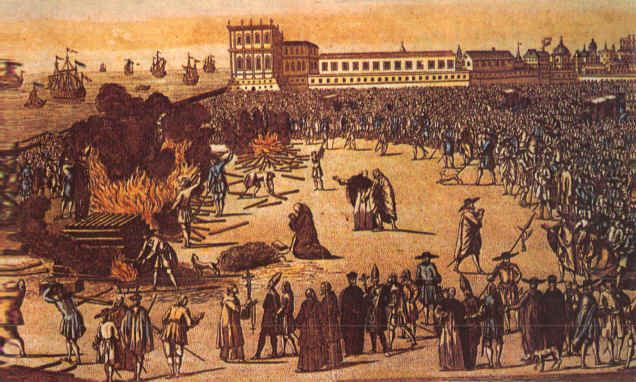|
Sha'ar Hashamayim Synagogue (Tondano)
Sha'ar Hashayamim Synagoge (Hebrew: שער השמים ("Sha'ar Hashamayim", "Gerbang Surga" in Indonesian)) also known as Beth Knesset Sha'ar Hashamayim or Kahal Kadosh Sha'ar Hashamayim is an Orthodox Jewish Synagogue with Sephardi tradition ( Spanish and Portuguese) located in Tondano, North Sulawesi, Indonesia, which was founded in 2003 and inaugurated in 2019. Sha'ar Hashamayim Synagogue is the second synagogue in Indonesia after another synagogue in the city of Surabaya, which was built in 1939 by the Iraqi Jewish community, and abolished at 2013. Sha'ar Hashamayim is the only Orthodox Synagogue in Indonesia that is still operating today. Gallery Shaar Hashamayim2-01.jpg, Synagogue interior Sinagoga tondano.jpg, Mikvah building (left), Synagogue building (right) Gulungan taurat sinagoga.jpg, Torah scroll, gift from Ben Judah's Jewish family Peresmian sinagoga.jpg, Synagogue inauguration by local government, 2019 Pembacaan Taurat.jpg, Recitation of ''Sefer Torah'' by ... [...More Info...] [...Related Items...] OR: [Wikipedia] [Google] [Baidu] |
Orthodox Judaism
Orthodox Judaism is the collective term for the traditionalist and theologically conservative branches of contemporary Judaism. Theologically, it is chiefly defined by regarding the Torah, both Written and Oral, as revealed by God to Moses on Mount Sinai and faithfully transmitted ever since. Orthodox Judaism, therefore, advocates a strict observance of Jewish law, or '' halakha'', which is to be interpreted and determined exclusively according to traditional methods and in adherence to the continuum of received precedent through the ages. It regards the entire ''halakhic'' system as ultimately grounded in immutable revelation, and beyond external influence. Key practices are observing the Sabbath, eating kosher, and Torah study. Key doctrines include a future Messiah who will restore Jewish practice by building the temple in Jerusalem and gathering all the Jews to Israel, belief in a future bodily resurrection of the dead, divine reward and punishment for the righteo ... [...More Info...] [...Related Items...] OR: [Wikipedia] [Google] [Baidu] |
Surabaya
Surabaya ( jv, ꦱꦸꦫꦧꦪ or jv, ꦯꦹꦫꦨꦪ; ; ) is the capital city of the Indonesian province of East Java and the second-largest city in Indonesia, after Jakarta. Located on the northeastern border of Java island, on the Madura Strait, it is one of the earliest port cities in Southeast Asia. According to the National Development Planning Agency, Surabaya is one of the four main central cities of Indonesia, alongside Jakarta, Medan, and Makassar. The city has a population of 2.87 million within its city limits at the 2020 census and 9.5 million in the extended Surabaya metropolitan area, making it the second-largest metropolitan area in Indonesia. The city was settled in the 10th century by the Kingdom of Janggala, one of the two Javanese kingdoms that was formed in 1045 when Airlangga abdicated his throne in favor of his two sons. In the late 15th and 16th centuries, Surabaya grew to be a duchy, a major political and military power as well ... [...More Info...] [...Related Items...] OR: [Wikipedia] [Google] [Baidu] |
Spanish Diaspora In Asia
Spanish might refer to: * Items from or related to Spain: **Spaniards are a nation and ethnic group indigenous to Spain **Spanish language, spoken in Spain and many Latin American countries ** Spanish cuisine Other places * Spanish, Ontario, Canada * Spanish River (other), the name of several rivers * Spanish Town, Jamaica Other uses * John J. Spanish (1922–2019), American politician * "Spanish" (song), a single by Craig David, 2003 See also * * * Español (other) * Spain (other) * España (other) * Espanola (other) * Hispania, the Roman and Greek name for the Iberian Peninsula * Hispanic, the people, nations, and cultures that have a historical link to Spain * Hispanic (other) * Hispanism * Spain (other) * National and regional identity in Spain * Culture of Spain * Spanish Fort (other) Spanish Fort or Old Spanish Fort may refer to: United States * Spanish Fort, Alabama, a city * Spanish Fort (Colora ... [...More Info...] [...Related Items...] OR: [Wikipedia] [Google] [Baidu] |
Sephardi Jewish Culture In Asia
Sephardic (or Sephardi) Jews (, ; lad, Djudíos Sefardíes), also ''Sepharadim'' , Modern Hebrew: ''Sfaradim'', Tiberian: Səp̄āraddîm, also , ''Ye'hude Sepharad'', lit. "The Jews of Spain", es, Judíos sefardíes (or ), pt, Judeus sefarditas or Hispanic Jews, are a Jewish diaspora population associated with the Iberian Peninsula. The term, which is derived from the Hebrew ''Sepharad'' (), can also refer to the Mizrahi Jews of Western Asia and North Africa, who were also influenced by Sephardic law and customs. Many Iberian Jewish exiles also later sought refuge in Mizrahi Jewish communities, resulting in integration with those communities. The Jewish communities of the Iberian Peninsula prospered for centuries under the Muslim reign of Al-Andalus following the Umayyad conquest of Hispania, but their fortunes began to decline with the Christian ''Reconquista'' campaign to retake Spain. In 1492, the Alhambra Decree by the Catholic Monarchs of Spain called for the expulsio ... [...More Info...] [...Related Items...] OR: [Wikipedia] [Google] [Baidu] |
Portuguese-Jewish Diaspora
Spanish and Portuguese Jews, also called Western Sephardim, Iberian Jews, or Peninsular Jews, are a distinctive sub-group of Sephardic Jews who are largely descended from Jews who lived as New Christians in the Iberian Peninsula during the immediate generations following the forced expulsion of unconverted Jews from Spain in 1492 and from Portugal in 1497. Although the 1492 and 1497 expulsions of unconverted Jews from Spain and Portugal were separate events from the Spanish and Portuguese Inquisitions (which were established over a decade earlier in 1478), they were ultimately linked, as the Inquisition eventually also led to the fleeing out of Iberia of many descendants of Jewish converts to Catholicism in subsequent generations. Despite the fact that the original Edicts of Expulsion did not apply to Jewish-origin New Christian ''conversos'' —as these were now legally Christians— the discriminatory practices that the Inquisition nevertheless placed upon them, which we ... [...More Info...] [...Related Items...] OR: [Wikipedia] [Google] [Baidu] |


